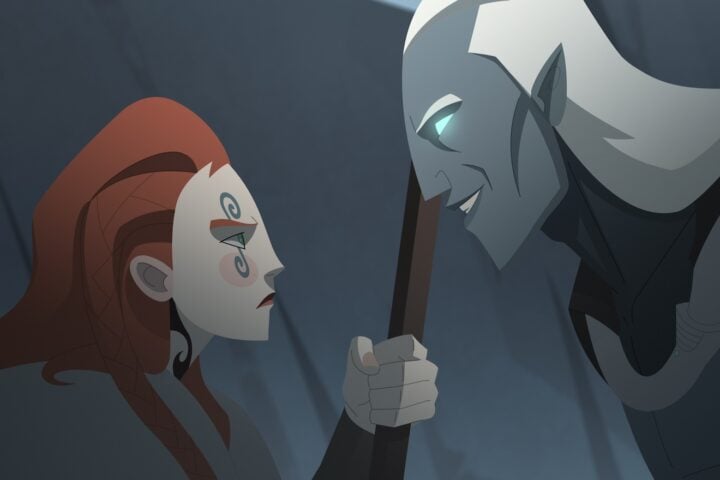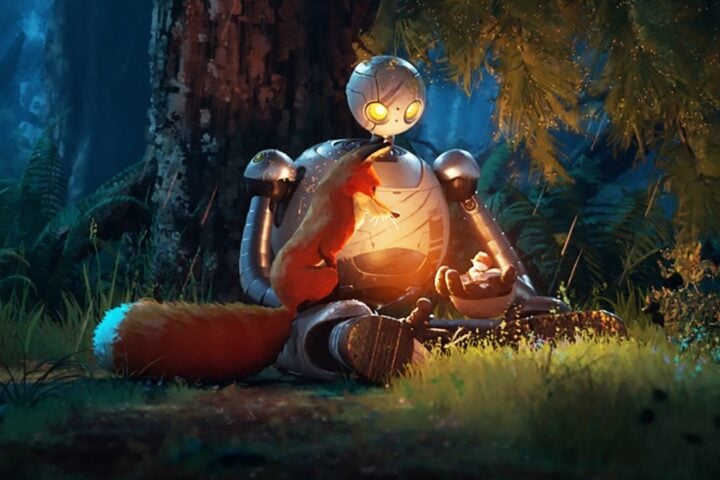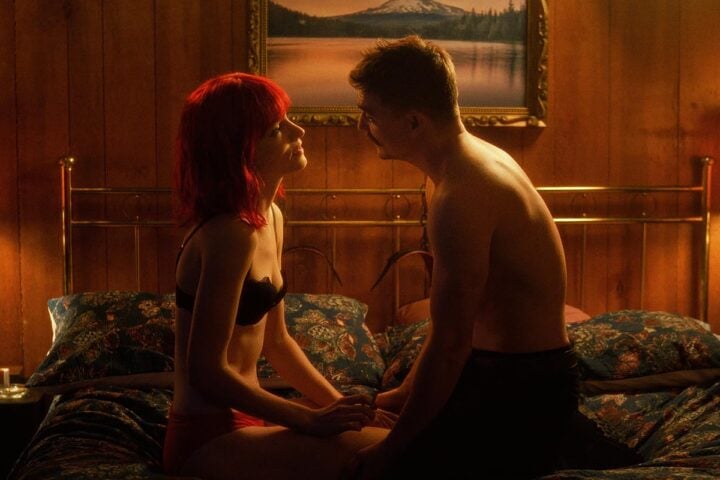On a dark night, pharma tycoon Roderick Usher (Bruce Greenwood) invites an old acquaintance to meet him in his childhood home. Auguste Dupin (Carl Lumbly), an attorney with the U.S. government, is surprised by the overture: He’s arguing a landmark lawsuit against Roderick’s company for its driving role in the opioid epidemic, and he’s never gotten the elusive magnate on the record. So, he approaches the boarded-up house at the end of a cul-de-sac, its rotting frame illuminated only by the pale glow of distant lightning. Inside, Roderick shocks Auguste by confessing his guilt—not only accepting the accusations against his company, but claiming responsibility for the recent, mystifying deaths of his six children.
Mike Flanagan’s The Fall of the House of Usher reimagines Edgar Allan Poe’s oeuvre as a remarkably nimble, tonally capacious collection of fables. The eight-part series sets its events in the contemporary moment and lends Roderick far greater authority than in Poe’s titular story, positioning him not as an odd creature of study, but as our narrator. He tells Auguste his family’s history along two time periods: starting in the 1950s, when Roderick (Zach Gilford) and his twin sister, Madeline (Willa Fitzgerald), began their ascent to unfathomable wealth, and the very recent past, when his children perished in rapid succession.
The doomed Usher spawn are a perfectly eccentric crew. The series first introduces us to them—and to its own sardonic streak—in a scene in which bumbling eldest son Frederick (Henry Thomas) rolls a bowling ball down a miniature lane in his luxurious abode…with the bumpers up. He and Tammy (Samantha Sloyan), whose wellness startup suggests a wannabe Goop, consider themselves Roderick’s true heirs. They deride their father’s four “bastards”: brilliant scientist Victorine (T’Nia Miller), cynical PR maestra Camille (Kate Siegel), playboy influencer Napoleon (Rahul Kohli), and aspiring nightlife mogul Prospero (Sauriyan Sapkota).
The profoundly entitled siblings want for nothing save Roderick’s near-unattainable approval. They don’t even try to win over Madeline (Mary McDonnell, whose bored, syrupy monotone belies fiery conviction). Their singular desire, in turn, sends them down the winding paths to their gruesome fates. The tales leading to these agonies inject a range of Poe’s texts with modern flair. An episode titled “The Masque of the Red Death,” for instance, substitutes the original story’s masquerade ball in an abbey with a masked orgy in Prospero’s pop-up club.
Flanagan (who directed half of the episodes, with cinematographer Michael Fimognari helming the others) and his co-writers smartly tinker with their source material, both avoiding the hyper-timeliness that poorly ages many modernizations and foregrounding the timeless themes that lurk within Poe’s texts—namely, alienation, madness, and loneliness. Prospero throws his fatal party following a disastrous business pitch to Roderick and Madeline, and he dies bearing the weight of that rejection and the fear of illegitimacy that it reinforces.
The common thread linking the show’s deaths is Verna (Carla Gugino), a shapeshifting figure from Roderick and Madeline’s past who worms her way into the lives of Roderick’s children and nudges each of them toward their grisly demise. For all the supernatural and otherworldly phenomena that she conjures, Verna is at her most eye-widening when lecturing her prey about their excesses, cruelty, and selfishness. She is, as far as they can tell, the rare person with the gall to admonish them—a being more terrifying than any monster.
True to their form in past collaborations, like Midnight Mass and The Haunting of Hill House, Flanagan and Fimognari construct a visual landscape that deftly conveys the horrors gripping the Ushers. Like everything else, the scares begin with Roderick. Suffering from hallucinations, he’s assailed by visions of his deceased family members, whose mutilated but animated bodies periodically and suddenly appear. In one scene, while at a funeral, Roderick feels a presence behind him and we catch a glimpse of a jester standing at the back of the church. The brief image zooms in at a crawl, rooting us in Roderick’s faraway perspective and preventing us from pinning down the specter’s precise shape, nature, and threat.
These phantoms transform the background of frames into a cursed place, keeping us on the lookout for movement in still spaces. And the series has fun with its horror, as when Napoleon nearly gets caught cheating by his boyfriend, Julius (Daniel Chae Jun). In this moment, the woman that he was fooling around with hides in the background halfheartedly and takes a photo of Napoleon, suggesting an unserious, starstruck ghost.
The series proves similarly compelling throughout its dual timelines, but its finest pleasures lie in the present, when Roderick and Auguste interrupt the flashbacks with personal and philosophical asides. Each cut back to the ruin of Roderick’s childhood home, where the two adversaries sip cognac by candlelight, provides a delectable peek into their psyches. They’ve known each other for decades, and their deep familiarity grounds the pulpy, almost melodramatic energy of their exchanges. But while the bitter foes bare their fangs, they need one another. It’s the grim truth at the heart of The Fall of the House of Usher and the story that inspired it: Better in the dragon’s den, or haunted by restless spirits, than alone.
Since 2001, we've brought you uncompromising, candid takes on the world of film, music, television, video games, theater, and more. Independently owned and operated publications like Slant have been hit hard in recent years, but we’re committed to keeping our content free and accessible—meaning no paywalls or fees.
If you like what we do, please consider subscribing to our Patreon or making a donation.




